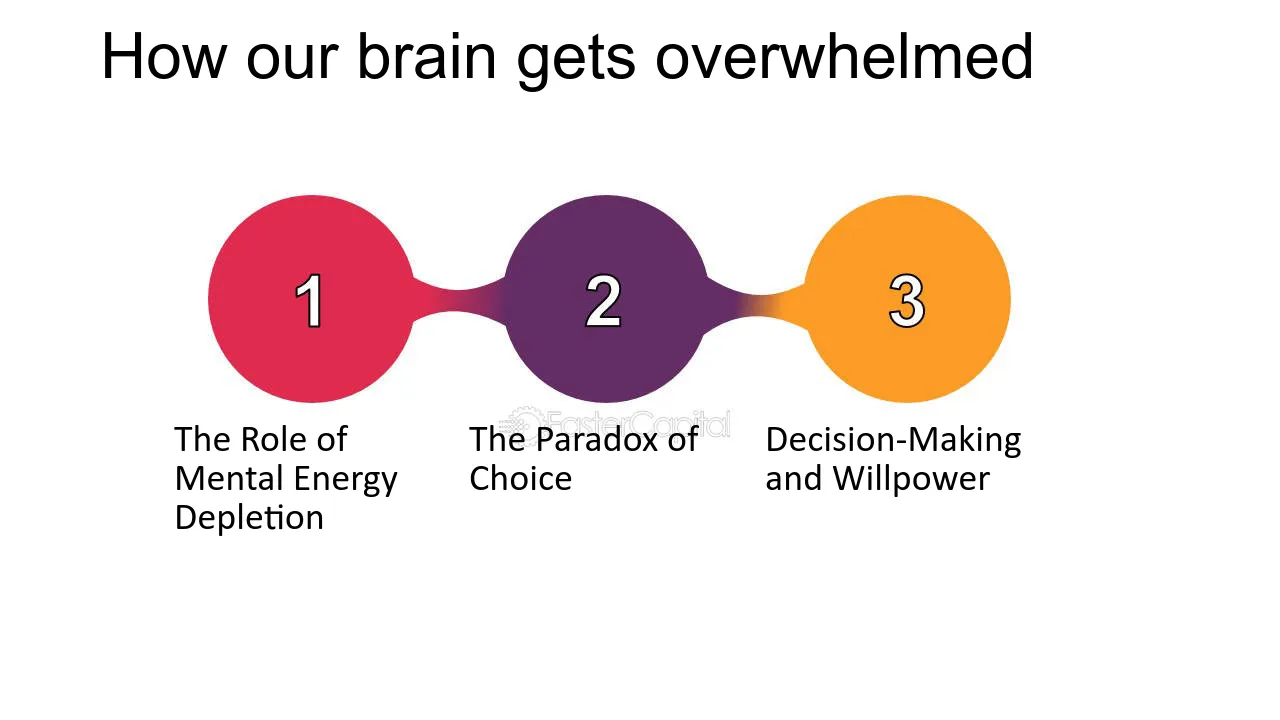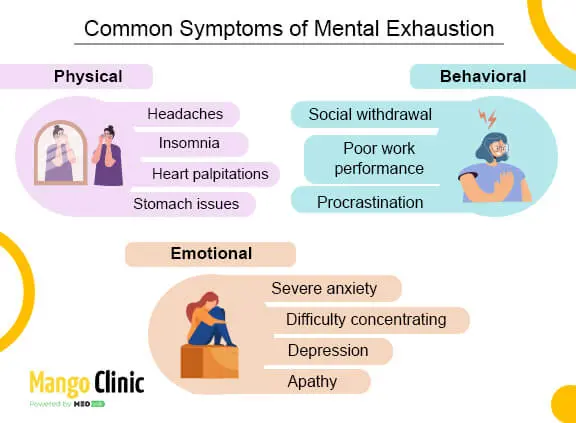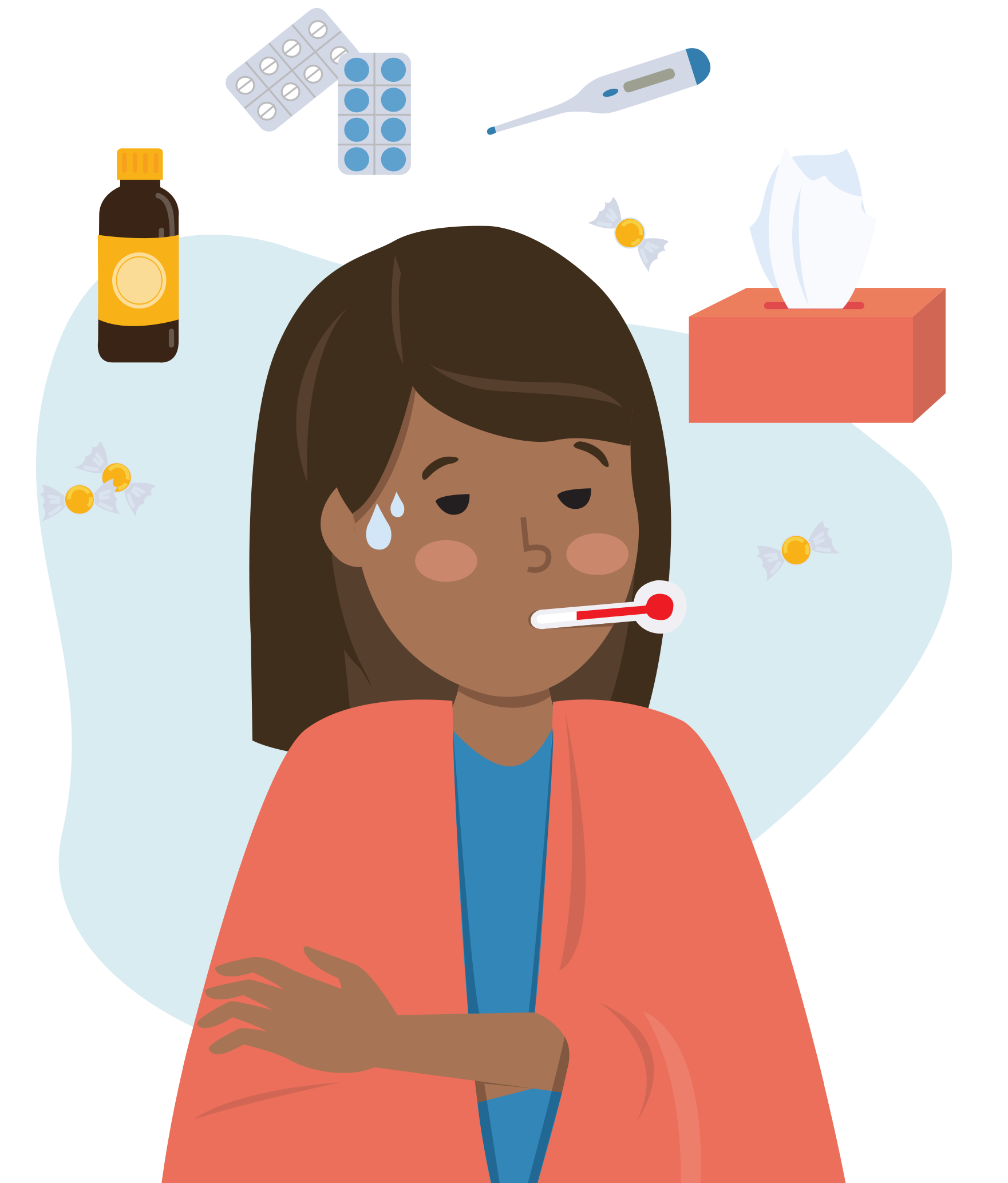How have you been doing recently?
If you’ve ever related a little too closely with one of those “adulting is hard” memes, you might know a thing or two about mental exhaustion. To be fair, adulting is hard: Between work deadlines, meetings, family commitments, and social obligations (not to mention those elusive self-care routines everyone keeps talking about), everyday life can be overwhelming, to say the least.
It’s a stressful world out there. In a world where juggling work, personal life, and the constant ping of notifications is the norm, mental fatigue is all too common. But it’s more than just being a little tired–it can bog you down, mess with your productivity, and even derail your wellbeing.
But while some amount of stress is an inherent part of the grown-up experience, there’s a limit to the amount of intense mental gymnastics you can handle before you start seeing signs of trouble. So, if you’ve ever felt utterly burnt out to the point of serious psychological strain and debilitating exhaustion, you’ll want to learn more about feeling mentally exhausted, what causes it, and how to overcome it.
Mental exhaustion goes beyond feeling tired. Sure, your eyes are drooping and your body feels heavy. But when you’re mentally spent, it can feel like your brain is moving through sludge. The easiest of tasks become epic challenges and no matter how many cups of coffee you consume you still find it hard to find the motivation to tackle your to-do list, meet with friends, or hit the gym.
In times like these, it can feel like there’s no end in sight, especially if the things causing mental exhaustion — think a stressful project at work, preparing for a medical board, or caring for a sick parent — are ongoing. But there are changes you can make to help you battle mental exhaustion and prevent it from happening again in the future.
Chess grandmasters burn up to 6,000 calories a day during tournaments, just by sitting there and thinking.
When I reach a point of mental exhaustion, I like to reflect on that fact. Too often, our mental energy — or lack thereof — feels like a moral deficiency rather than a physical one.
If I had more willpower, I could power through and get this done. Why can’t I just focus? What’s wrong with me?!
It’s easy to forget that our brains require energy to function. We wouldn’t run a marathon and then feel like failures when our legs are tired. So why do we treat mental fatigue so differently? Our brainpower is exhaustible, but it’s 100% renewable if we manage it wisely.

Think of this article as your marathon training program for your brain. I can’t promise you’ll never feel mental fatigue but you can experience it less often, less severely, and with fewer negative consequences for your mental health and productivity.
How Mental Exhaustion Happens
First things first, what do we even mean when we say “mental fatigue”?
What’s behind this mental exhaustion exactly? A 2022 study suggests that hard mental work can lead to a build-up of the neurotransmitter glutamate in your brain. The high concentration of glutamate then affects your decision-making skills, self-control, and ability to do hard tasks or perform your best mentally. Sleep may therefore be more important than ever as it can help flush out waste materials from the brain. But not all experts agree with this theory, and more research needs to be done.
More 2022 research suggests mentally demanding work can cause changes in your brain metabolism, which can leave you feeling mentally fatigued. And some research states too much cognitive activity and stimulation can leave you feeling mentally exhausted.
Other research suggests mental fatigue is linked to disturbed sleep, high work demands, being female, being older, and being a supervisor. But interestingly, shift work and long work hours may not be linked to mental fatigue, but disturbed sleep is a key culprit. In this study, disturbed sleep included:
- Difficulties falling asleep
- Waking up often during the night
- Waking up too early in the morning
- Trouble getting up in the morning
- Nightmares
- Heavy snoring

Finally, a 2020 study looked at students and found sleep problems were linked to a close link of mental exhaustion, emotional exhaustion. It concluded: “These findings provide evidence that sleep problems are involved in the development of emotional exhaustion over time.”
On days like this I want to zone out on Netflix and let a movie watch me. Know that feeling?
Although feeling this way might seem exhausting, the good news is that there are steps you can take to lift that mental fog and regain clarity.
How To Prevent it
There are 5 simple ways to prevent mental exhaustion. Choose the one(s) that work for you:
1. Identify your optimal time for complex cognitive tasks – are you most resilient in the morning or afternoon? Choose your peak time to do the most mentally taxing work.
2. Set limits on your complex cognitive tasks – healthy boundaries prevent burn out. Overestimate how long a task will take so you build in time for breaks, getting outside to clear your head, walking around the block, having a light/fun conversation with a colleague to give your brain a break.
3. Take a tech break – get away from your computer, phone, tech in general to protect your brain. You’ll return to it refreshed.
4. Choose what to focus on – bust the myth of multi-tasking. It exhausts your brain and actually makes you less efficient and productive.
5. Increase cell density in your prefrontal cortex and hippocampus via meditation – the benefits of getting still inside are well-documented. Even a 5-minute meditation break will leave you feeling relaxed, calm and clear

Help Your Brain to Recover from Mental Exhaustion
Which brings us to recovery. The solution won’t surprise you: the key is rest and sleep. Your brain synapses will gradually eliminate glutamate during sleep. Resting/chilling out at the end of a hard day will help you to press a pause button on further accumulation of glutamate, so when you dive into bed you’ll have less to release.
Just as your body tells you when to stop extended physical activity via the feeling of exhaustion and muscle fatigue, your brain does the same thing when you reach mental exhaustion. It’s simply brain fatigue. The buildup of glutamate has now slowed the brain’s activity and you’re feeling mentally fried. If we continue to reach mental exhaustion daily, we’ll hit the burnout button in time.
A common side effect found in the research was the seeking of instant gratification once mental exhaustion was reached. This is why you might reach for sugar, caffeine, or other substances when you’ve maxed out on your mental limit. You want relief, and you want it now. Be aware of this, and have healthy alternatives handy, like exercise.
Are you feeling mentally exhausted? Try the above tips and let me know how they work for you!





As someone who is mentally exhausted this was really helpful.
Can you be more specific about the content of your article? After reading it, I still have some doubts. Hope you can help me.
I don’t think the title of your article matches the content lol. Just kidding, mainly because I had some doubts after reading the article.
I don’t think the title of your article matches the content lol. Just kidding, mainly because I had some doubts after reading the article.